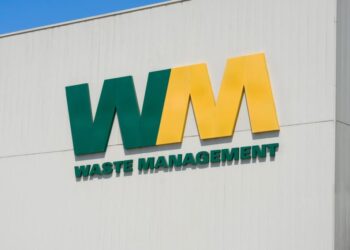The U.S. IT asset disposition and electronics recycling industries struggled to sustain growth in 2023 because of a dormant market, dominated by lack of demand for used equipment and parts, and hesitation from companies that have refrained from relinquishing their aging assets. Asset procurement on the upstream side and trading in the downstream sector were weak, and as a result, prices fell substantially.
This year turned out to be much better, and as the ITAD sector wraps up 2024 on a high note, industry sentiment continues to improve with a notable uptick in demand and market stability. There are promising signs that this will continue into 2025 and far beyond.
Challenges of 2023 fade as new trends drive growth
Last year’s challenges began with the fact that companies retained assets longer than usual, meaning ITAD vendors couldn’t procure them. This was partly due to lack of demand for used equipment in the secondary market, prompting decision makers in enterprises to wait for prices to recover, particularly in the data center equipment space.
This year, a number of factors contributed to a turnaround, and the sector experienced renewed activity. Savvy ITAD vendors are greatly benefiting from these trends.
One driver is the increase in data center decommissioning, as companies optimize or expand their IT infrastructure. The steps required to comply with data security laws during the decommissioning phase are providing ITAD vendors new opportunities to offer their clients on-site and compliance-related services.
At the same time, Windows 11 rollouts are leading companies to decommission aging systems. Such an OS shift is needed to boost corporate IT performance, enhance security and provide support for new applications.
Another positive factor is the continuance of remote and hybrid work models. An increasing number of devices used in remote work settings during and after the pandemic are now flowing into their decommissioning phase, and ITAD vendors are playing a pivotal role in handling these assets as they go to the secondary market or the recycling stream. Although some leading companies want their employees to abandon remote work, millions of workers will continue on these flexible work arrangements that would enable a consistent flow of laptops, mobile devices and other equipment into the secondary market.
Rising resale values create conditions for industry growth
This year’s improved market conditions were made possible by stronger resale values for servers and networking equipment, boosting the bottom line for ITAD vendors. The market for renewed, refurbished and certified pre-owned systems has been robust for vendors involved in remarketing.
Premium ITAD services have also seen steady demand, with companies concerned about data leaks and environmental breaches that can happen during the decommissioning phase. Premium services include on-site data destruction, certified data wiping, and secure transportation, services that clients are increasingly willing to pay for.
This focus on security has been particularly pronounced among industries that own and use sensitive information, such as healthcare, finance and government, where regulatory compliance is critical. However, ITAD vendors that relied almost exclusively on the public sector have found their market environment to be difficult.
Despite the overall market gains, industry leaders are experiencing some roadblocks this year, particularly in negotiating sales and future planning. With businesses hesitating and taking a cautious approach to budget allocations, ITAD vendors often experience extended negotiation periods before closing deals. In many cases, months of negotiations are wasted due to companies abandoning or postponing ITAD projects.
Additionally, forecasting demand over the medium and long terms is still difficult, making it hard for ITAD vendors to plan ahead and budget operations and investments. Many ITAD companies that have been experiencing growth say they have visibility for just three to four months. In this environment, budget planning, financing or attracting investors are not easy to achieve, posing mid-to-long term risks to vendors looking to grow.
AI and ESG to bring new opportunities
Several technological shifts and market dynamics are driving positive ITAD sentiment moving into 2025.
One major factor is the increasing adoption of artificial intelligence across most, if not all, industries. Updating and expanding IT infrastructure to host and support AI applications will be important for companies if they want to maintain or improve competitiveness and boost productivity.
This means that the ITAD sector will be called to manage the decommissioned IT equipment and contribute to creating new infrastructure based on retired assets moving into their secondary lifecycle. Creating data centers with used equipment will be one of the most important drivers of the ITAD business.
AI will also be critical to improving ITAD vendors’ own operations. While leading vendors have always focused on cost control and productivity improvement, we anticipate their own AI-related upgrades will bring greater efficiencies in areas such as data security, inventory management, device tracking, sorting, grading and price forecasting.
Another opportunity driver is the ongoing migration from Windows 10 systems to Windows 11. This OS rollout often requires hardware upgrades too, resulting in decommissioning systems that no longer meet the operational requirements of a company. This is contributing to an influx of older devices into the ITAD pipeline, and we expect this will continue in 2025.
Compliance with emerging corporate environmental, social and governance norms will also drive further demand for ITAD services, as organizations seek partners that can support their sustainability initiatives. In the entire IT asset management discipline, ITAD is the closest to environmental issues. Whether devices are reused or ultimately recycled for commodity recovery, ensuring it is handled in compliance with existing regulations is a skill that ITAD vendors have improved over the decades, thanks to certifications that keep the environment front and center.
These trends are taking place when new regulations related to data privacy and electronic waste are shaping the industry’s future. We are seeing stricter compliance requirements coming from various government bodies around the world, forcing companies to review their handling and disposal of data-bearing devices.
In return, these regulatory trends are going to stimulate consolidation within the industry, with larger players expanding their market share through acquisitions of smaller firms.
David Daoud is a principal analyst at Compliance Standards, a research and consulting firm that works with the ITAD industry. He can be reached at [email protected].






























